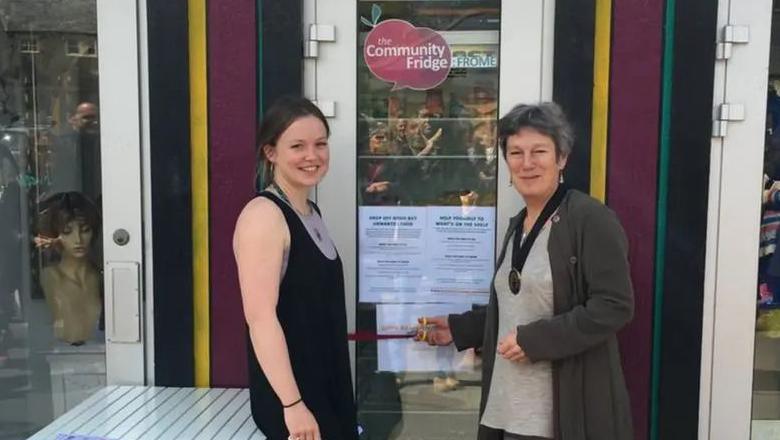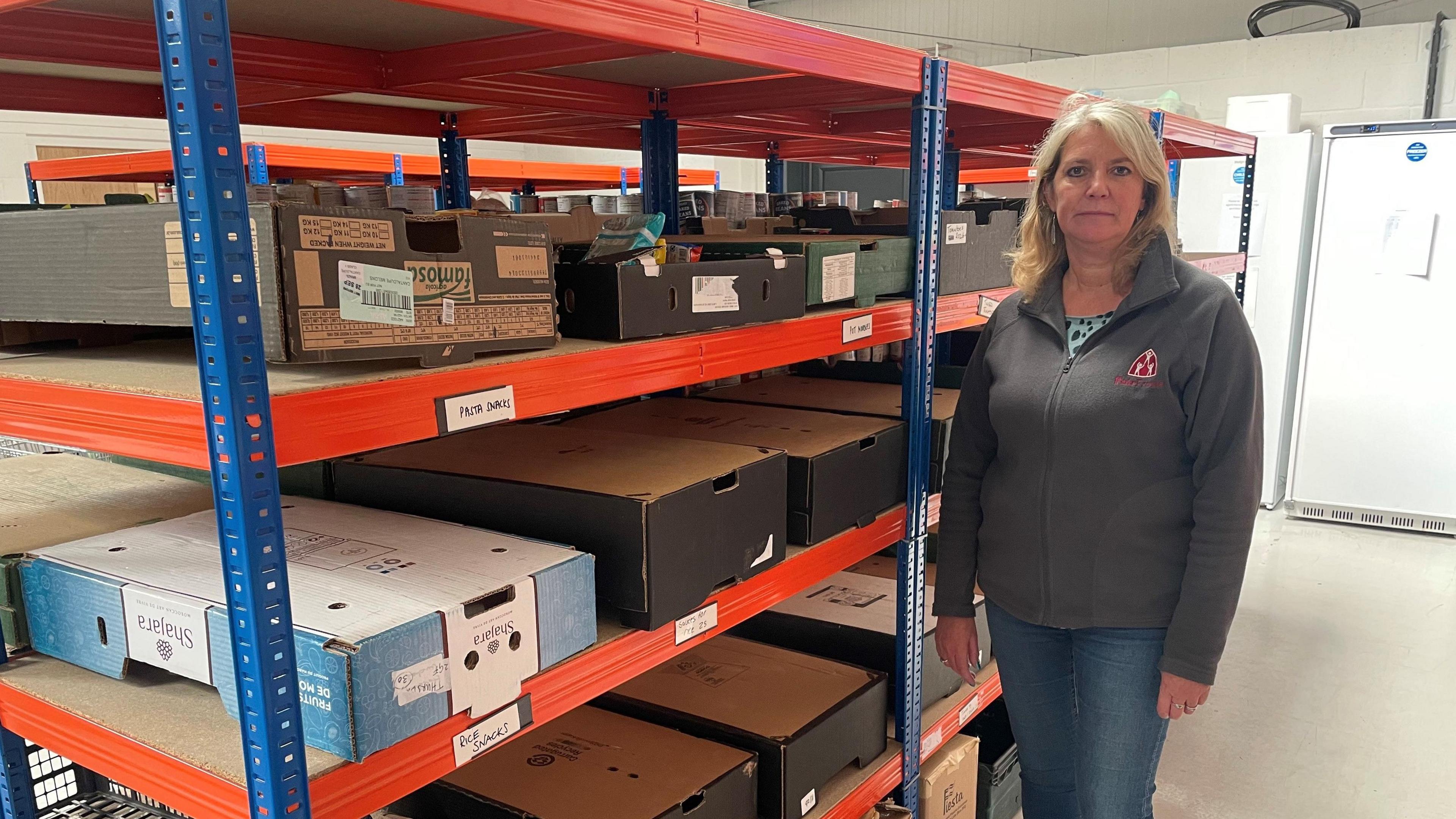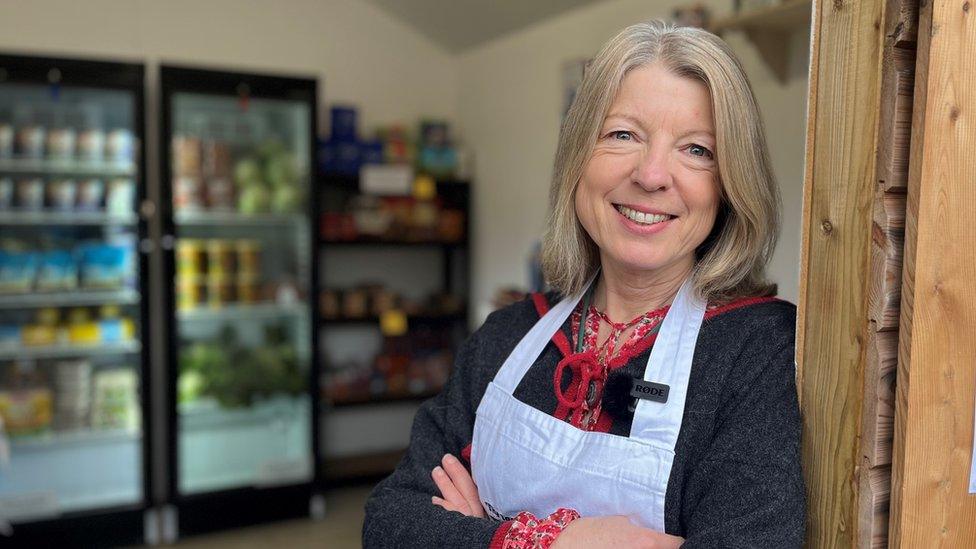Donations to food charities drop - as demand increases

A survey has found donations to food charities are also decreasing
- Published
Food charities are facing a crisis as donations have been decreasing and some organisations have seen demand double.
One Somerset food bank said its "biggest concern" is funding the service moving forward.
Meanwhile, organisers of Frome's Community Fridge have said "it's quite shocking to see the range of people" using their service, which offers free food to anyone in need.
Terri Pitts, co-ordinator at the community fridge, said: "Pre-Covid our figures were about 600-700 people using our fridge a day, now it's 1,200 a day."
The community fridge was opened in 2016 outside Frome Town Hall and is believed to be the first of its kind in the UK.
A survey conducted by Neighbourly, which helps businesses donate time and resources to groups in need, found charities based in the west of England had experienced a decrease of 39% in donations of food or products over the last few months.
The research also found that 41% of about 1,000 charities have seen an increase in families with children seeking support for the first time.
Steve Butterworth, CEO of Neighbourly, said people are now heading into their "fifth winter of high energy prices, which is perpetuating the cost-of-living crisis and in turn increasing pressure on charities and good causes".
Ms Pitts added the rise in demand was due to the cost of heating and food.
She said "people are struggling" and there has been a rise in children using their fridge after school.
Ms Pitts said to meet demand the charity opened a second community fridge in Frome at the market car park.
Meanwhile, leaders of the town's food bank, which is run by Fair Frome, are concerned about how they are going to keep funding the scheme.
Lenka Grimes, co-ordinator at the food bank, said: "We are seeing an increase in demand and our biggest concern is funding our projects going forward."
Get in touch
Tell us which stories we should cover in Somerset
Follow BBC Somerset on Facebook, external and X, external. Send your story ideas to us on email or via WhatsApp on 0800 313 4630.
Related topics
- Published17 September 2024

- Published22 March 2024

- Published12 December 2024
